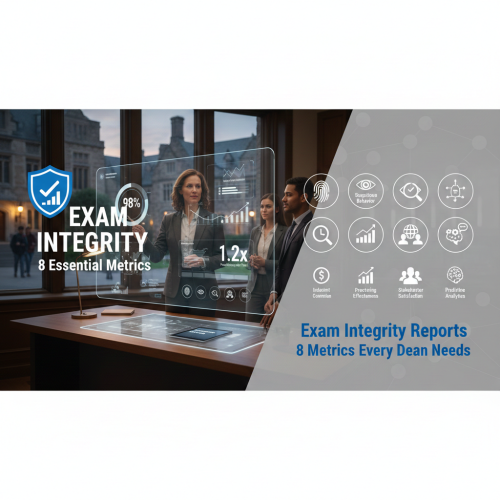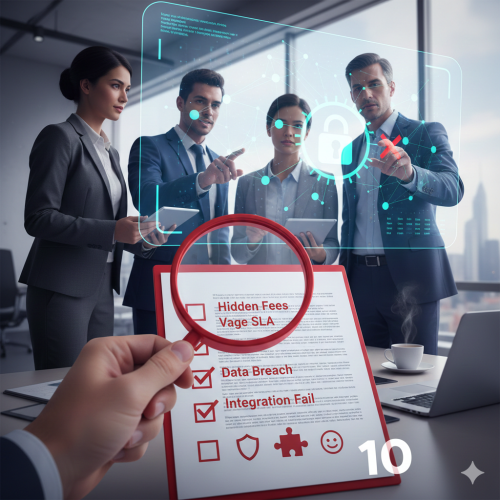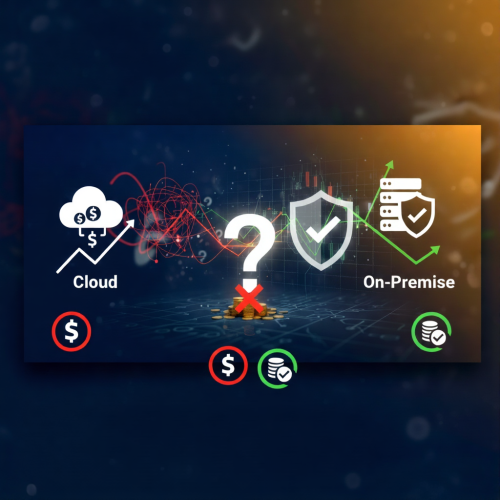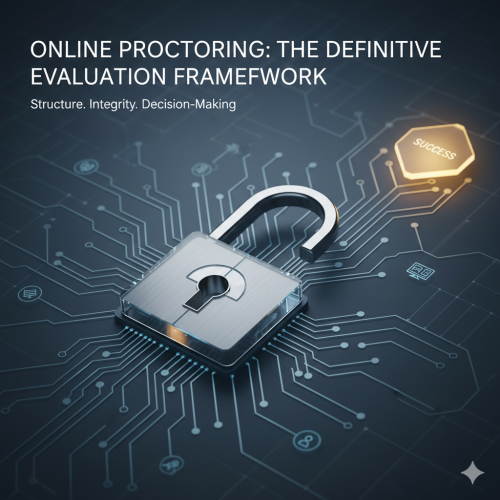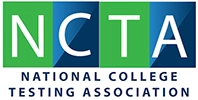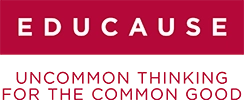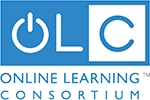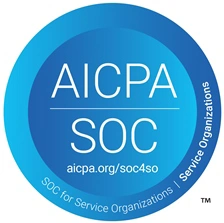The Growing Importance of Remote Proctoring in Higher Education
The shift towards remote learning has been accelerated by global events, technological advancements, and changing student expectations. According to a recent report by Educause, over 76% of higher education institutions now offer some form of online assessment that requires proctoring solutions. This trend shows no signs of slowing, with the remote proctoring market projected to grow at a CAGR of 18.2% from 2023 to 2028, according to Markets and Markets research.
As educational leaders, we understand that maintaining academic integrity while providing flexible testing options presents unique challenges. The right remote proctoring service can bridge this gap, offering the security of traditional testing centers with the convenience and accessibility that modern students require.
Key Criteria for Evaluating Remote Proctoring Services
When assessing remote proctoring solutions for higher education, several critical factors should guide your selection process:
Security and Integrity Measures
The primary purpose of any proctoring solution is to maintain test integrity. Top-rated services employ multiple security layers:
- Environmental scanning - Complete visibility of the test environment
- Identity verification - Multi-factor authentication to confirm student identity
- AI-powered behavior monitoring - Detection of suspicious activities
- Recording capabilities - Documentation of the entire exam session
According to a 2023 survey by the Online Learning Consortium, institutions that implemented comprehensive proctoring solutions reported a 64% decrease in academic integrity violations compared to unproctored online exams.
Flexibility and Configuration Options
Every course and examination has unique requirements. Leading solutions offer customizable options to match specific assessment needs:
- Multiple proctoring modalities (AI, live, or hybrid approaches)
- Adjustable security settings based on exam stakes
- Support for various assessment types and formats
- Integration with existing learning management systems
Student Experience and Accessibility
The quality of the student experience directly impacts test performance. The most effective proctoring solutions prioritize:
- Intuitive interfaces with minimal technical requirements
- Clear instructions and straightforward navigation
- Accommodations for students with disabilities
- Responsive technical support during examinations
Recent data from the National Center for Education Statistics shows that institutions prioritizing accessible testing technologies see up to 28% higher completion rates among students with disabilities.
Data Privacy and Compliance
With increasing scrutiny around data protection, leading proctoring services maintain strict privacy standards:
- FERPA and GDPR compliance
- Transparent data collection and retention policies
- Secure storage and transmission of sensitive information
- Options for data minimization
Top-Rated Remote Proctoring Solutions for Higher Education
Based on market research, user feedback, and industry recognition, several providers stand out in the remote proctoring landscape. While each offers unique advantages, we at Proctor360 are proud to be recognized among the leaders in this space. Let's examine what sets the top solutions apart:
360 Total View™ Proctoring: Setting a New Standard
Our flagship 360 Total View™ proctoring service represents a significant advancement in remote testing security. Unlike traditional webcam-based solutions that provide limited visibility, our patented headset technology captures a complete 360-degree view of the testing environment.
Key advantages include:
- "Test center grade" security delivered anywhere
- Complete environmental visibility that eliminates blindspots
- Support for both online and paper-based examinations
- Live proctoring with intervention capabilities
According to recent client feedback, institutions implementing our 360 Total View™ solution report a 92% reduction in suspected cheating incidents compared to traditional webcam proctoring.
Multi-Camera Live Proctoring: Enhanced Visibility
For assessments that require robust security without specialized hardware, multi-camera solutions offer significant advantages over single-camera approaches. Our Multi-cam Live Proctoring service utilizes both the candidate's webcam and cell phone camera to provide expanded visibility.
Benefits include:
- Secondary camera angle eliminates common blindspots
- Records all views and audio simultaneously
- Real-time intervention capabilities
- Flexible deployment without specialized equipment
Recent data from our institutional partners shows that multi-camera proctoring identifies 43% more potential integrity violations compared to single-camera solutions.
AI-Powered AutoProctoring: Scalability with Security
The integration of artificial intelligence into proctoring solutions has revolutionized the industry's approach to large-scale assessment. Modern AI proctoring systems can:
- Monitor multiple behavioral indicators simultaneously
- Flag suspicious activities for human review
- Reduce the cognitive load on human proctors
- Scale efficiently for large examination cohorts
A 2023 report by Gartner indicates that institutions utilizing AI-augmented proctoring solutions experience a 36% reduction in administrative costs while maintaining comparable integrity outcomes to fully human-proctored exams.
Hybrid Proctoring Models: The Best of Both Worlds
The most sophisticated proctoring services now offer hybrid approaches that combine AI monitoring with human oversight. This balanced approach provides:
- Initial AI screening to identify potential issues
- Human verification of flagged incidents
- Reduced false positives compared to purely automated solutions
- Cost-effective scaling without compromising security
Remote Proctoring Software for Institutional Control
For institutions that prefer to maintain direct oversight of the proctoring process, dedicated software solutions allow for in-house management. Our Remote Proctoring Software provides:
- Complete institutional control over proctoring processes
- Built-in scheduling and management tools
- Reduced per-session costs for high-volume testing
- Customization options to match institutional policies
Implementation Best Practices
Selecting the right remote proctoring service is only the first step. Successful implementation requires thoughtful planning and execution:
Integration with Existing Systems
The most effective implementations seamlessly connect proctoring solutions with existing educational technology ecosystems. According to EDUCAUSE, institutions that prioritize integration report 47% fewer technical issues during implementation. Key considerations include:
- LMS compatibility and single sign-on capabilities
- Assessment platform integration
- Student information system data synchronization
- Training resources for faculty and students
Clear Communication and Training
Student and faculty preparation significantly impacts proctoring success. A comprehensive onboarding process should include:
- Clear explanation of proctoring requirements and rationale
- Step-by-step technical setup instructions
- Practice opportunities before high-stakes assessments
- Accessible support resources for troubleshooting
Ongoing Evaluation and Refinement
Remote proctoring implementation should be viewed as an iterative process. Regular assessment allows for continuous improvement:
- Collecting and analyzing user feedback
- Monitoring technical performance metrics
- Reviewing flagged incidents for patterns
- Adjusting configurations based on outcomes
The Future of Remote Proctoring in Higher Education
As we look ahead, several emerging trends are likely to shape the evolution of remote proctoring services:
Enhanced Biometric Verification
Advanced biometric technologies, including facial recognition, keystroke dynamics, and behavioral biometrics, are becoming increasingly sophisticated. These technologies promise more seamless and secure identity verification with less disruption to the testing experience.
Improved Accessibility Features
The next generation of proctoring solutions will place greater emphasis on inclusive design. Innovations in this area include:
- Alternative verification methods for students with disabilities
- Adaptive interfaces that respond to individual needs
- Reduced technical requirements for disadvantaged students
Ethical AI Development
As AI plays an increasingly central role in proctoring, ethical considerations will drive development priorities:
- Reduced algorithmic bias in flagging systems
- Greater transparency in AI decision-making
- Privacy-preserving monitoring techniques
- Student-centered design approaches
Selecting the Right Solution for Your Institution
When evaluating remote proctoring options for your institution, consider these key questions:
- What types of assessments will require proctoring, and what security level is appropriate for each?
- How important is flexibility in proctoring modalities for different courses and programs?
- What technical infrastructure and support resources are currently available?
- How will proctoring integrate with existing learning management and assessment systems?
- What budget constraints must be considered in the selection process?
The answers to these questions will guide you toward the solution that best aligns with your institutional needs and constraints.
Conclusion: Partnering for Academic Integrity
As remote and hybrid learning models continue to evolve, the role of proctoring in maintaining academic integrity will only grow in importance. By selecting the right remote proctoring partner, institutions can ensure that the convenience of online assessment doesn't come at the expense of credibility and trust.
At Proctor360, we're committed to supporting higher education's digital transformation with flexible, secure, and user-friendly proctoring solutions. Our comprehensive approach—offering everything from AI-powered monitoring to 360-degree environmental scanning—ensures that institutions can maintain academic integrity standards while providing students with convenient, accessible testing options.

